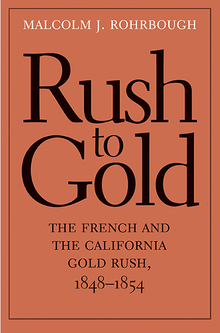The Americas in the Age of Revolution
WARNING
You are viewing an older version of the Yalebooks website. Please visit out new website with more updated information and a better user experience: https://www.yalebooks.com
1750-1850
Lester D. Langley
Out of Print
Langley examines the political and social tensions reverberating throughout British, French, and Spanish America, pointing out the characteristics that distinguished each upheaval from the others: the impact of place or location on the course of revolution; the dynamics of race and color as well as class; the relation between leaders and followers; the strength of counterrevolutionary movements; and, especially, the way that militarization of society during war affected the new governments in the postrevolutionary era. Langley argues that an understanding of the legacy of the revolutionary age sheds tremendous light on the political condition of the Americas today: virtually every modern political issue—the relationship of the state to the individual, the effectiveness of government, the liberal promise for progress, and the persistence of color as a critical dynamic in social policy—was central to the earlier period.
A selection of the History Book Club
"Langley's effort to compare those revolutions is to be commended because it highlights both the opportunities and the difficulties of comparative history. His book will generate considerable discussion and, I hope, will inspire more research and analysis of the American, Haitian, and Spanish-American revolutions."—Jaime E. Rodríguez, American Historical Review
"Challeng[es] us to start thinking about the comparative dimensions of independence revolutions in the wider Americas. . . . Deserves to be read by experts, graduate, and undergraduate students alike."—Victor M. Uribe, Americas
"Comparative history brilliantly dissected through the paradigm of chaos theory and complex systems."—Bookman News
"Lester D. Langley has produced a magisterial work for scholars of early America and of Latin American history. . . . Langley's work is authoritative, significant, and insightful. Scholars in both Latin American and colonial studies are in his debt."—Glenn Feldman, Business Library Review
"A valuable and informative study, sensitive to the complexities and contradictions of a variety of revolutionary processes."—Choice
"An intriguing, fresh, and somewhat persuasive comparative study of three of the most important revolutions in this hemisphere: the American Revolution of 1776, the Haitian revolution that began in 1791, and the revolutions that engulfed Spanish America and ended in the early 19th century. . . . Revolutions that had a profound impact on the history of the Western Hemisphere."—Seth G. Jones, Christian Science Monitor
"The volume's impressive scope makes it a welcome and much-needed work that contributes to new transnational scholarship. Langley . . . demonstrates an impressive command of a huge secondary literature. Rather than an incisive monograph based on archival research, this is a well-written synthesis."—Liam Riordan, Journal of Interdisciplinary History
"The dust jacket accurately describes this book as magisterial. The author roams authoritatively over three revolutionary experiences in two continents over a period of a century. . . . By bringing his study to mid-century he essentially provided an epilogue that permitted evaluations of each revolutionary experience. His command of materials is impressive, and the exegetical endnotes are worthy of special attention for the variety of historiographical interpretations they offer."—Lawrence S. Kaplan, Journal of the Early Republic
"In this sophisticated comparative history, Langley examines the causes, character, and consequences of the American, Haitian, and Spanish American revolutions. . . . His well-documented and readable work effectively distinguishes between independence movements and true revolutions. A nice complement to any academic collection; highly recommended."—Library Journal
"Langley's . . . readers may never again see the formative years of the United States in quite the same way. . . . Mr. Langley enables us to see that the knowledge we need to understand our Revolution in context may well be found not in the experiences of France or Russia or China but in the revolutionary travails of our too frequently neglected hemispheric neighbors."—Fred Anderson, New York Times Book Review
"Every serious scholar of United States or Latin American history should own this book. . . . Langley's study is a valuable matrix of events that can help us better understand the relationships in our hemisphere then and now."—Publishers Weekly
"Unique viewpoint and thoughtful insights . . . make this book an excellent option for those with a deeper interest in any and all of these conflicts and a desire for a more integrated perspective on the region."—Timothy Hawkins, The Annals of the American Academy of Political and Social Science
"These ambitious and suggestive volumes provide abundant testimony to the value of comparative history. They will amply repay close study by students of the early modern colonizing process."—Jack P. Greene, The International History Review
"[This book] offers useful comparisons and insightful analysis of social and political developments in about half the Western Hemisphere: roughly the territory not under monarchical government at the end of the period."—Neill Macaulay, The Journal of American History
"The story it tells us is of enduring interest, the method provocative, the scholarship sound and thorough."—Mark Falcoff, Times Literary Supplement
Publication Date: November 27, 1996









